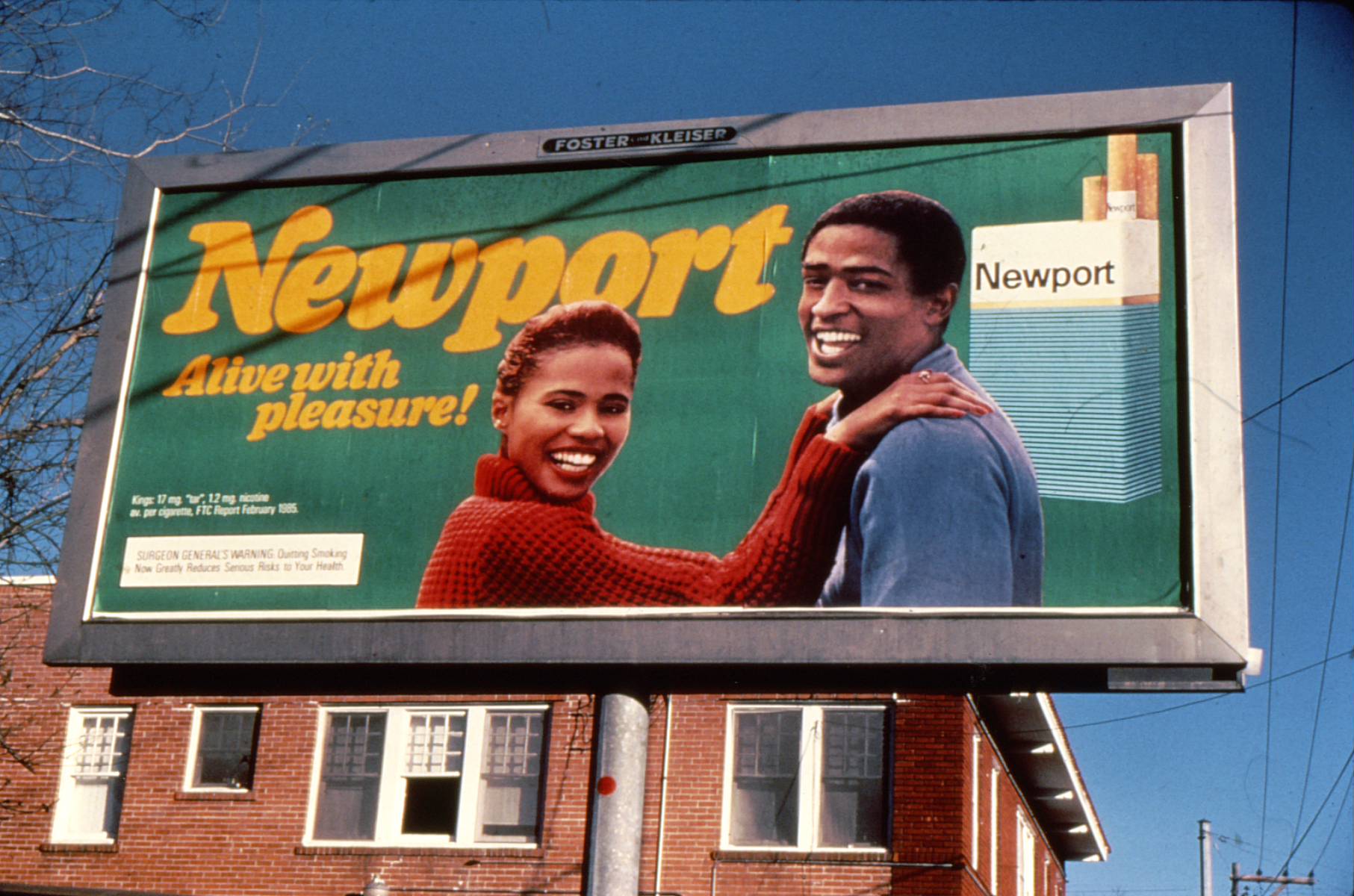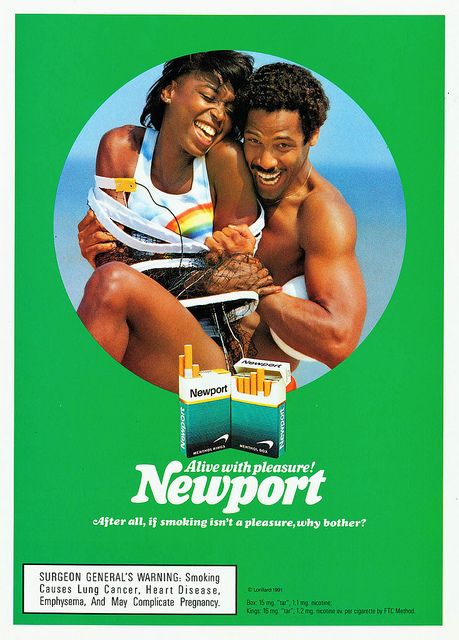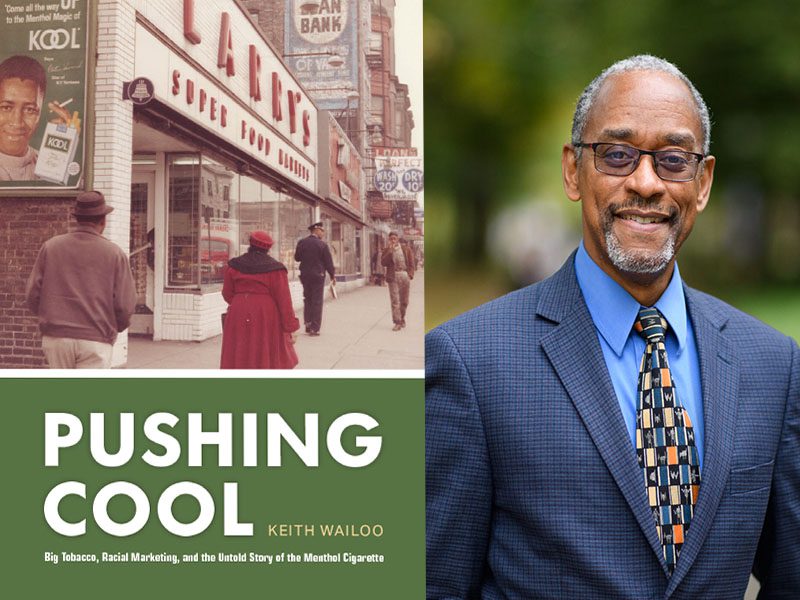You are using an out of date browser. It may not display this or other websites correctly.
You should upgrade or use an alternative browser.
You should upgrade or use an alternative browser.
Newport giving out FREE menthols in the hood (90’s)
- Thread starter keond
- Start date
More options
Who Replied?Mastamimd
Ain't shyt
Used to cop loosies as some sort of way to kick the habit.
Like if i just buy 2 cigarettes its better than buying a pack.

The lil shop by PV used to sell them like that too lol
Quit a lil over a year ago tho
Mastamimd
Ain't shyt
Yep, I remember them posting up on campus with blonde white girls passing them out by the case
Glad I never got into caffeine, energy drinks, nicotine.
I'm cool with a lot of girls that used to be Red Bull girls(one is married to my homie). Got a whole case once because they came to a party but we had no alcohol for some reason
My pops told me they was doing this in the 80s too.
Can we get a re-up?

Can we get a re-up?
Code:
https://web.archive.org/web/20210617131531/https://twitter.com/DrinkSolaPop/status/1276986144555753472The Ridiculously Racist History of Menthol Cigarettes
Charly Wingate
All Star
Predatory advertising
Growing up my uncle had this exact billboard by his house

that shyt stayed up there for years until the bytch was peeling off
I stopped smoking around 4 years ago.
Shoutout to Apu who sold Newport singles in the gas station in the hood
These ads were always on the back cover of Jet magazine. They were in Ebony too.
Big tobacco was a huge chunk of their ads.

The whole youtube channel is full of amazing historical info.
Big tobacco was a huge chunk of their ads.
The whole youtube channel is full of amazing historical info.
wow, they all got paid off.

 that white tobacco exec was like "I think that's a racist approach"
that white tobacco exec was like "I think that's a racist approach"
edit:
this dude 'scott stapf' was a scumbag.
https://www.washingtonpost.com/arch...tobacco/4b6d36ae-47e8-41cd-8701-221447993c36/
Eyes on the lies; how black leaders and cigarette companies have turned indoor smoking into a civil rights issue. - Free Online Library
snippet:
Scott Stapf sat before the New York CityCouncil in January and warned of an impending problem of massive racial discrimination against black New Yorkers. Legislation the council was considering, he said, "would encourage discriminatory enforcement at the expense of the city's minority communities.' The council members looked skeptical but Stapf pushed on, pointing out that the legislation would affect thousands of working blacks in New York and that "minority groups see them as a frighteningly familiar discriminatory element.'
This civil rights worker was none other than the assistant to the president of the Tobacco Institute, the lobbying arm of the tobacco industry. The "discriminatory' legislation he was so ardently opposing was a proposed ban on indoor smoking in New York City. How is this an issue of racial discrimination? The bill, in addition to requiring large restaurants to create nonsmoking sections, prohibits employees from smoking in most open office areas, whether in government departments or private businesses. So the tobacco lobby argues that the office provision is discriminatory because clerical-type jobs are held largely by minorities. They correctly note that white male executives can puff away in their private offices but the black clerical staff, being in the open areas covered by the smoking ban, must put out their cigarettes. Therefore, the "rights' of blacks are being disproportionately affected.
Black leaders have come to the Tobacco Institute's side, lobbying against the city council legislation and assailing a New York State Public Health Council ruling--now being challenged in the courts--that implemented the indoor smoking ban. The Institute assembled an impressive list of local minority leaders to join the "Committee for Common Courtesy,' a coalition opposing the ban. The group included Hazel Dukes, president of the New York State branch of the National Association for the Advancement of Colored People; Wilbert Tatum, the outspoken editor of The Amsterdam News, the city's leading black weekly; Nat Singleton, executive director of the Association of Minority Enterprises; Ray Hostock, president of the Caribbean-American Chamber of Commerce; Jewel Jackson McCabe, president of the National Coalition of 100 Black Women; and James Hargrove, president of the National Black Police Association.
Last edited:
Two healthy black people on this pic but correlate to cigarettesI used to see these ads all over urban areas growing up. Especially in Oakland

They knew what they were doing
Two healthy black people on this pic but correlate to cigarettes
 It’s all marketing. We know in shape black dudes aren’t running around smoking.
It’s all marketing. We know in shape black dudes aren’t running around smoking. It’s funny though looking back.
I used to see these ads all over urban areas growing up. Especially in Oakland

They knew what they were doing
mirrored it

get these nets
Veteran

Nov 2021
Spanning a century, Pushing Cool reveals how the twin deceptions of health and Black affinity for menthol were crafted—and how the industry’s disturbingly powerful narrative has endured to this day.
.
In Pushing Cool, Keith Wailoo tells the intricate and poignant story of menthol cigarettes for the first time. He pulls back the curtain to reveal the hidden persuaders who shaped menthol buying habits and racial markets across America: the world of tobacco marketers, consultants, psychologists, and social scientists, as well as Black lawmakers and civic groups including the NAACP. Today most Black smokers buy menthols, and calls to prohibit their circulation hinge on a history of the industry’s targeted racial marketing. In 2009, when Congress banned flavored cigarettes as criminal enticements to encourage youth smoking, menthol cigarettes were also slated to be banned. Through a detailed study of internal tobacco industry documents, Wailoo exposes why they weren’t and how they remain so popular with Black smokers.